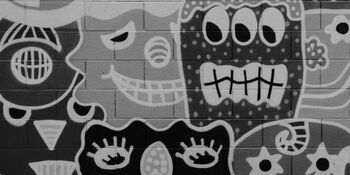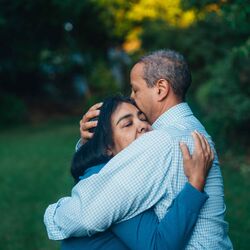We all learn to play certain ‘roles’ growing up, which later on may cause stress and arguments with your partner. What roles have you taken up? Which ones would you like to adapt, or throw out?
What do we mean when we talk about ‘roles’?
We each have a number of different roles in life, and these can change from time to time. I wonder what roles you have at this point in your life. Daughter or son? Mother or father? Aunt or uncle? Carer perhaps? Friend? Maybe a role connected with a job – teacher, cleaner, mechanic etc? Some roles we choose, some we don’t. Some roles we might enjoy more than others.
There are other roles we take up in life that are much less obvious, in fact they can be quite subconscious. These are the ones that we learn in our childhood and family of origin – the unspoken ones. They are formed within the dynamics of relationships.
Some examples of roles…
Someone, for instance, who is the first in their family to go to university, might be given the role of “the clever one”. This may feel like a pressure, an obligation to achieve in a certain way, and for other siblings, the implication may be that they are not clever, although talents and gifting comes in many different forms.
Another family role could be that of “the peacekeeper”. This can occur in families where there is high conflict and the child takes on the responsibility of trying to keep the family steady. In this instance, the child takes up the responsibility that is actually the responsibility of the adults.
There are a host of possible roles – here are a few more:
The rescuer — At the first hint problem, the rescuer will leap in to provide a solution. The difficulty is though, that it isn’t always helpful. Often others don’t need rescuing and are perfectly capable of finding a solution themselves. Even children need to be encouraged to problem solve appropriately for their age. The rescuer frequently needs to improve their own ability to tolerate emotional discomfort.
The martyr — The martyr lets you know how much they’re doing for everyone else, and how much they’ve put themselves out. They are really good at pushing the guilt button! The “After all I’ve done for you!” is a typical statement. People who live with martyrs can easily feel bad about themselves, and resentful towards the martyr. They may emotionally switch off from the relationship from a sense of self preservation.
The controller — This person likes to keep control of everyone and everything. Not having everything under control raises their anxiety, and everything has to be done the way they think it should be done. The person on the receiving end of the control experiences criticism and judgement, and the effect of control in the relationship is likely to be passive or overt anger, conflict and distance.
The drama queen has an over the top response to things. It’s all or nothing . Things are either utterly marvellous and wonderful, or the worst disaster. The drama queen of course takes centre stage. The problem this creates in relationships, is that people get tired of it and become dismissive. Constant dramas are too exhausting to engage with.
The victim — poor me. Someone with a victim mindset sees themselves as powerless, and will tend to interpret events negatively and take things personally. They will shy away from taking personal responsibility to change things, and tend to blame others. A healthy relationship requires each person taking responsibility for change, and if one fails to do that the relationship cannot grow, and emotional closeness is compromised.
How roles develop and how they can affect our relationships
The roles we learn to take in our childhood become part of our natural way of being. They become our ‘normal’, even though they may not feel comfortable. They can become woven into the fabric of our behaviour, our first default response. It is the familiar way we have learnt to deal with life. Some childhood roles we have adopted because they are protective and we have developed them in an attempt to lessen our vulnerability. Other roles may have been foisted upon us.
Whatever the reason, if we carry our early life roles into our adult relationships, they can cause a problem. It’s like taking a piece from a jigsaw and trying to fit into a different picture. Being able to be “the strong one” or “the coper” is certainly useful at times, but if we can never allow ourselves not to be strong, or to admit that we cannot cope, we predispose ourselves to anxiety and pressure, which have an impact not just on us, but very likely those around us as well.
How we might adapt any roles we play to be more healthy
If someone has historically taken the role of “peacekeeper”, they may find themselves accepting behaviour they don’t want to accept or trying to foresee and divert anything that could possibly mean conflict before it arises. But this can result in a false temporary peace that does not provide true resolution. The role of “peacemaker” is a more helpful one, because it allows for conflict, seeks mutual understanding and enables resolution, whereas the role “peacekeeper” is based on avoidance. Living with someone who avoids any conflictual situation at all costs, can be incredibly frustrating!
We all pick up a variety of roles through life. It may be time to do a little roles inventory and ask ourselves what we might want to adapt or even throw out? There are some questions for reflection below.
QUESTIONS FOR REFLECTION
What roles have I taken up in my life?
What effect do those roles have on my own wellbeing? On those that I live with?
Which ones would I like to keep, adapt, or throw away?
.….…
Toucan Together is the app for couples to grow and strengthen their relationship. Discover deeper ways to communicate and find positive approaches to resolving arguments with your partner. FIND OUT MORE.
.….…
YOU MIGHT ALSO LIKE…
Why arguing with your partner isn’t a sign that you’re not meant to be together
Couple relationship counselling — how does it work, and does it help?
How to keep your love — and marriage — strong in the chaos of babies, children and family life


